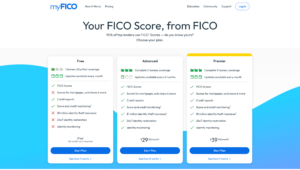Is identity theft protection worth it? I used to be of the opinion that identity theft protection services were unnecessary.
But not anymore. Identity theft is so pervasive, it’s difficult to keep up with the latest scams.
In 2023, consumers reported losing more than $10 billion to fraud as reported by the Federal Trade Commission (FTC). This marks a 14% increase over reported losses in 2022.
I’m currently of the belief that an identity theft protection service is worth every penny.
Here is the breakdown:
- Fraud: 2.5 million (48% of all reports)
- Identity theft: 1.1 million (19%)
- Other Activity: 1.8 million (33%)
Identity theft and fraud is a multi-billion dollar industry.
Is identity theft protection service worth it?
I say yes. But choosing one depends on what types of financial information you want to protect. Many credit card companies offer cardholders some form of identity theft protection but I would not recommend their services. Typically, the monitoring services offered by credit card companies are inadequate and bare bones.
Review Lifelock’s identity theft protection services:
Lifelock for Identity Theft Protection
LifeLock has been in business since 2005. It was co-founded by Robert J. Maynard and Todd Davis. In 2012, LifeLock was acquired by Symantec for $2.3 billion. In 2022, Symantec rebranded itself as NortonLifeLock.
How Norton Lifelock Works
Norton LifeLock identity theft protection services that include:
- Credit monitoring. LifeLock monitors your credit reports for signs of unauthorized activity, such as new accounts opened in your name or inquiries made on your credit.
- Dark web monitoring. LifeLock scans the dark web for your personal information, such as your Social Security number, email address, and credit card numbers. If your information is found on the dark web, LifeLock will notify you so that you can take steps to protect yourself.
- Data breach notifications. LifeLock will notify you if your personal information has been compromised in a data breach. This will allow you to take steps to protect yourself, such as placing a fraud alert on your credit report.
- Identity theft insurance. LifeLock offers identity theft insurance, which can help you recover financial losses if you are a victim of identity theft.
- Identity alerts. LifeLock will send you alerts if it detects suspicious activity, such as a new credit card application in your name.
- Identity restoration services. If you are a victim of identity theft, LifeLock will help you restore your identity. This includes disputing fraudulent accounts, placing fraud alerts on your credit report, and monitoring your credit reports for future problems.
What Norton LifeLock Costs
LifeLock offers different levels of identity theft protection, each with its own set of features. New customers get up to 33% off the first year of membership.
Here are some of the highlights of each level:
- LifeLock Standard – $89.99. This level offers basic identity theft protection, including credit monitoring, dark web monitoring, and identity theft insurance.
- LifeLock Advantage – $179.88. This level offers more comprehensive identity theft protection, including all of the features of LifeLock Standard, plus bank account and credit card monitoring, and identity restoration services.
- LifeLock Ultimate Plus – $239.88. This level offers the most comprehensive identity theft protection, including all of the features of LifeLock Advantage, plus Social Security number monitoring, and phone takeover protection.
» Learn more about Lifelock Discounts
How common is identity theft?
The Federal Trade Commission took in over 5.39 million reports in 2023, so it’s a reasonable assumption that it can happen to anyone. And, identity theft includes several different types of fraud:
Common Types of Identity Theft
There are many types of identity theft, but some of the most common include:
- Credit card fraud. This is when someone uses your credit card information to make unauthorized purchases.
- Bank account fraud. This is when someone uses your bank account information to withdraw money from your account or make unauthorized transfers.
- Tax fraud. This is when someone uses your Social Security number to file a fraudulent tax return.
- Employment fraud. This is when someone uses your identity to get a job or file for unemployment benefits.
- Medical fraud. This is when someone uses your health insurance information to get medical care or prescription drugs.
- Synthetic identity theft. Synthetic identity theft is a type of identity theft in which the thief creates a new identity using a combination of real and fake information. For example, an identity thief might use a real Social Security number (SSN) combined with a name that is not associated with that number. The Credit Privacy Number (CPN) industry typically uses these tactics.
- Child identity theft. Most children under the age of 16 do not have credit reports, so it is possible for a fraudster to open credit accounts in their name without being detected. This is because credit bureaus typically do not start tracking a person’s credit history until they are at least 16 years old.
Identity thieves can steal your personal information in a variety of ways, including:
- Skimming. This is when a thief installs a device on an ATM or gas pump that steals your credit card or debit card information.
- Phishing. This is when a thief sends you an email or text message that looks like it’s from a legitimate company, such as your bank or credit card company. The email or text message will often contain a link that, when clicked, will take you to a fake website that looks like the real website. Once you enter your personal information on the fake website, the thief can steal it.
- Data breaches. This is when a company’s computer system is hacked and personal information, such as Social Security numbers, credit card numbers, and passwords, is stolen.
5 Worst States for Identity Theft in 2023
According to the FTC, here’s where Americans are most likely to face identity theft, based on the number of complaints filed per capita, as June 2023:
- Washington, D.C.: 261 identity theft complaints per 100,000 residents. (1,786 complaints total)
- Georgia: 253 identity theft complaints per 100,000 residents. (26,864 complaints total)
- Florida: 240 identity theft complaints per 100,000 residents. (51,247 complaints total)
- Nevada: 213 identity theft complaints per 100,000 residents. (6,501 complaints total)
- Delaware: 207 identity theft complaints per 100,000 residents. (2,033 complaints total)
Can you protect your own identity?
There are several websites that allow you to review your credit reports and track credit scores. But is this enough? If you discover fraudulent activity you can start the process of reporting the fraud, filling-out police reports and identity theft reports with the FTC, freezing credit reports and disputing credit errors.
But, often the damage has already been done. And, the financial and emotional impacts of identity theft is long-lasting. It can take a lot of time and money to resolve the impact of identity theft which can cause emotional distress. The consequences of identity that go beyond the loss of data and personal information.
A study by the Identity Theft Resource Center found victims of identity theft suffer in ways unimaginable, for instance:
- 28.2% of respondents had to borrow money from family or friends.
- 37.5% lost time at work.
- 33% of respondents had to use savings to cover expenses.
- 8.5% obtained a payday loan.
- 83.8% of respondents felt worried and anxious.
- 36.8% felt a sense of powerlessness or helplessness.
- 10% reported feeling suicidal. (If you’re feeling suicidal for this or any other reason, please call the National Suicide Prevention Lifeline at 1-800-273-8255.)
It’s not surprising that many identity theft victims are annoyed and frustrated by the fact that they have to spend so many hours dealing with a financial problem not caused by them.
Norton LifeLock offers a variety of plans to fit your needs, including individual plans, family plans, and plans for businesses.






















